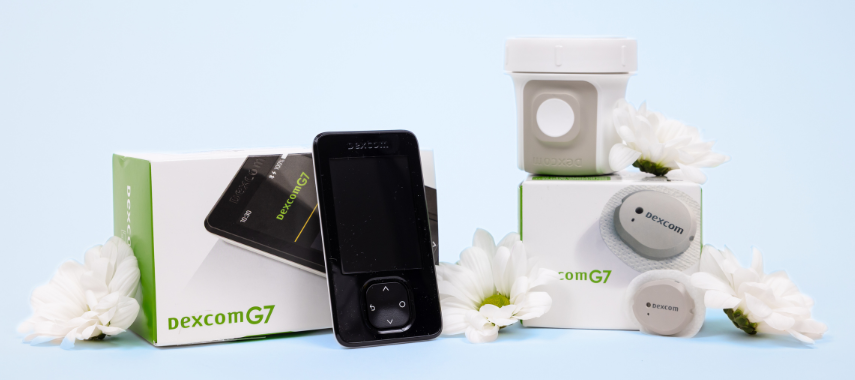Key Takeaways:
- Incorporating low glycemic foods into your diet can help stabilize blood sugar levels, making it easier to manage diabetes effectively.
- Snacking on foods that provide healthy fats and proteins satisfies hunger contributes to better blood sugar control.
- Opting for whole foods instead of processed options can lead to improved insulin sensitivity and overall health.
Managing blood glucose levels effectively can be challenging, but it’s essential to preventing serious long-term health problems. This is true whether you’ve been diagnosed with diabetes, prediabetes, or if your pancreas is perfectly functional. Healthy eating can have a significant impact on your blood sugar levels, in both the short- and long-term. Use this article as a guide on how to make the most of it.
How Can You Lower Your Blood Sugar Levels?
The goal is to stay within your target range as recommended by your healthcare provider and avoid blood sugar spikes or crashes. Maintaining healthy blood sugar levels throughout the day helps regulate your energy and keeps the organs functioning properly. One way to achieve this is by slowing down the digestive process that turns carbohydrates into energy.
Yes, your blood sugar will naturally rise in response to the carbs you eat. But it’s important to keep in mind that not all carbs were created equal. Some have a higher glycemic index (GI) than others. Refined carbs are in the high GI category. Minimally processed carbs with high fiber content are in the low GI category. Eating more low GI carbs in place of higher GI carbs can help people with diabetes more easily control blood sugar levels. Pairing your carbs with foods that have plenty of protein and fiber and even healthy fat can also help.
We’ve put together a list of nutrient-rich foods with low glycemic scores that won’t spike your blood sugar and will help you feel full.
What Are 10 Foods That Help Lower Blood Sugar?
1. Leafy Green Vegetables
This superfood group includes things like kale, spinach, broccoli, bok choy, chard, and salad greens. They have very low levels of carbohydrates so they won’t spike your blood sugar. Rich in antioxidants, studies have shown that eating these powerhouse foods may reduce your risk for cancer, heart disease, and type 2 diabetes. The USDA recommends eating at least 2-3 servings of green leafy veggies per week to take advantage of these health benefits.
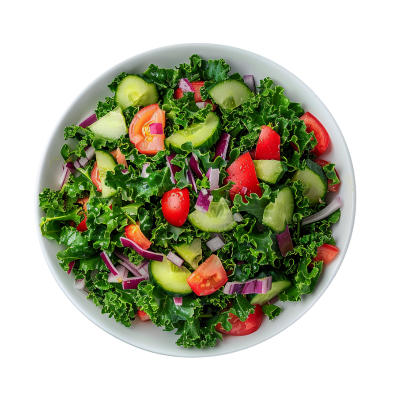

2. Legumes
Legumes like chickpeas, lentils, and black beans may contain starch, but they also have protein, magnesium, and a high level of soluble fiber. This means they are slower to digest than simple carbohydrates, providing a steady energy supply to your body as opposed to a quick rush. The high fiber content found in beans is associated with lower risk for obesity, high cholesterol, and high blood pressure. Canned beans are affordable and convenient, but make sure to check the label for added sugars and choose ones with no salt added or low sodium before you buy.


3. Olive Oil
Olive oil has long been an essential part of a traditional Mediterranean diet, which is rich in vegetables, whole grains, and healthy fats, and low in red meat and refined carbohydrates. Eating this type of diet, including olive oil, may have unique benefits for people with diabetes. A 2015 study found that extra virgin olive oil helps lower blood sugar levels and cholesterol more than other types of fat. While olive oil is a heart-healthy fat, you should still be aware of the total amount of fat they're eating as high fat intake can be associated with insulin resistance. It is also the most calorie dense macronutrient and can lead to weight gain if consumed in excess.


4. Nuts
Low in carbs but high in protein and healthy fats, nuts are a solid choice for people with diabetes looking for something to snack on. They help to regulate blood sugar and help you feel fuller, which could aid in weight loss. There are multiple studies that link nuts with improved health benefits, including lower risk for type 2 diabetes, and slowed blood sugar response. Just be sure to eat nuts in moderation, since they are high in calories.
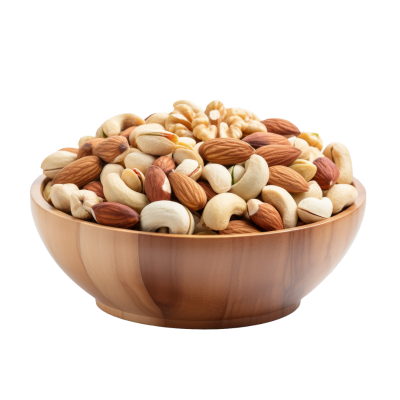

5. Oatmeal
High in carbs but also rich in soluble fiber, oatmeal can be a good alternative to high sugar cereals for those with type 2 diabetes. But beware; the more processed the oats, the quicker they are to digest and increase your blood glucose levels. Stick with old-fashioned or steel cut oats (as opposed to instant oatmeal) and eat with a protein or healthy fat. Since many sweeteners are often added to oats, it’s a great idea to choose plain oats or unsweetened packets and sweeten them naturally with whole fruits. Microwaved frozen berries make a delicious addition as well! It’s also important to be mindful of your preparation methods—try to avoid adding too much fat or sugar. Low-fat milk or unsweetened plant-based milk are excellent choices for a healthier option.
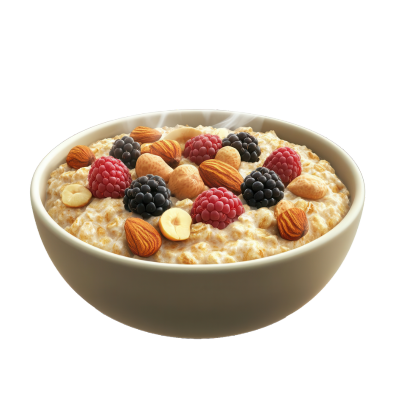

6. Eggs
Speaking of proteins and healthy fats, eggs are packed with both, especially the yolks. Eggs are a wonderful addition to a healthy diabetes diet, having been linked with improved insulin sensitivity and reduced fasting blood sugar in adults with prediabetes or type 2 diabetes. They also help you feel full, which makes it easier to maintain a healthy body weight. Some studies indicate that eggs can be included in a healthy diet without increasing heart disease risk factors, while others still point to emphasis in moderation. Therefore, it's best to consume eggs in a balanced way and focus on pairing them with whole foods—particularly plant-based options, rich in fiber, and low in saturated fat—for a balanced diet.


7. Chia Seeds
Chia seeds are an excellent source of fiber and antioxidants (noticing a trend?) and they also contain high levels of omega 3 fatty acids. These nutrient-packed seeds may reduce the risk of type 2 diabetes and diabetes complications. Much like the other high-fiber foods on this list, chia seeds help to slow digestion, reduce insulin resistance, and help prevent high blood sugar. It’s easy to sprinkle in chia seeds to oatmeal, yogurt, smoothies, and baked goods for a nutritious boost.
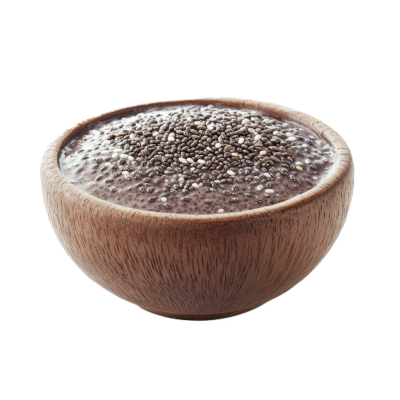

8. Plain Yogurt
Rich in protein and probiotics, plain, unsweetened yogurt is one of the best dairy products people with diabetes can eat. A 2017 study found that people who ate probiotic yogurt daily had lower blood glucose levels and blood pressure than people who did not. While you’ll find a vast array of yogurt at the grocery store nowadays, make sure to watch for added sugars, which are especially prevalent in low fat and flavored yogurt. Greek yogurt is an especially good choice since it contains fewer carbs and more protein than conventional yogurt.


9. Seafood
Seafood is an excellent source of protein, antioxidants, vitamins and minerals. Like the other high-protein foods on this list, seafood helps you feel full and slows digestion. Fatty fish that is rich in omega 3’s may be particularly healthy for people with diabetes. It has been shown to help overweight adults improve their post-meal blood sugar levels more than people who consumed other types of fish. Salmon, mackerel, sardines, and albacore tuna are just a few of the options to choose from.


10. Garlic
Garlic is widely used as a way to punch up the flavor of many recipes, but it also has health benefits for people with and without diabetes. The compounds found in garlic give it a strong antibacterial and antifungal property, and it has been associated with cancer prevention, reduced blood pressure and improved blood sugar management. Keep in mind that it can be quite potent and when eaten raw or in large quantities, causing side effects like heartburn and nausea.
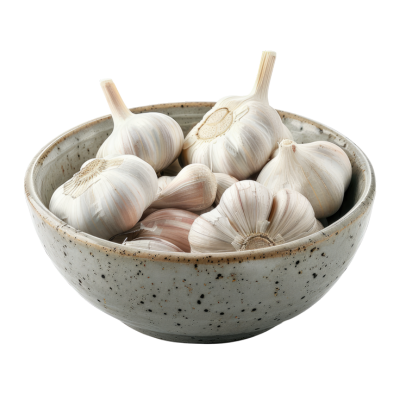

Other Tips for Blood Sugar Control and Diabetes Management


Get Active
Exercise helps increase our body’s sensitivity to insulin, which lowers blood sugar. According to the American Diabetes Association, physical activity can result in reduced blood sugar for up to 24 hours after your workout. Keep track of your blood sugar levels to see how your body responds to exercise.
Stay Hydrated
Water helps flush all kinds of toxins from our system, and it can also remove excess glucose. One study found that not drinking enough water puts people at risk for high blood sugar levels.
Lose Excess Weight
Carrying extra weight is linked with insulin resistance and a higher risk for developing diabetes. If you’re reading this, you’re already exploring how to eat healthier, which is a major factor in weight loss, so good for you! Keep in mind that even losing a modest amount of weight can result in major gains for blood sugar management.
Get Enough Sleep
Having unstable blood sugar levels can wreak havoc on your sleep cycle and lead to insomnia and frequent urination during the night. Poor quality sleep or low amounts of sleep can also impact your hormones that signal hunger and fullness making it harder to maintain a healthy diet and healthy weight. This in turn can lead to fatigue the next day, which increases insulin resistance and makes it harder to stick to a healthy diet and lose weight.
How To Better Manage Your Blood Glucose Levels Using a CGM
Managing blood sugar levels with diabetes can be overwhelming, but a continuous glucose monitor (CGM) can be a game-changer when it comes to managing it. Along with incorporating low glycemic foods into your diet, consider if a CGM could be right for you.
To see if you or your loved one qualifies for a CGM through insurance, simply fill out our secure Eligibility Form. After you submit the form, we’ll reach out shortly to inform you of your eligibility status.
Once qualified, you can choose from high-quality, insurance-covered CGMs. Depending on your insurance plan, options may include:
- Dexcom: Dexcom G6 System or Dexcom G7 System
- Abbott: FreeStyle Libre 2 System or FreeStyle Libre 3 System
Better manage your diabetes and overall health today!
References
CDC. “Sleep for a Good Cause.” Centers for Disease Control and Prevention, 10 Dec. 2020, www.cdc.gov/diabetes/library/features/diabetes-sleep.html.
Ellis, E. (2019, November 19). What Is Glycemic Index. www.eatright.org. https://www.eatright.org/health/wellness/diet-trends/what-is-glycemic-index
“Health Benefits of Chia Seeds.” WebMD, www.webmd.com/diet/health-benefits-chia-seeds#1.
Helland, Anita, et al. “High Intake of Fatty Fish, but Not of Lean Fish, Improved Postprandial Glucose Regulation and Increased the N-3 PUFA Content in the Leucocyte Membrane in Healthy Overweight Adults: A Randomised Trial.” British Journal of Nutrition, vol. 117, no. 10, 1 May 2017, pp. 1368–1378, www.cambridge.org/core/product/identifier/S0007114517001234/type/journal_article, https://doi.org/10.1017/S0007114517001234.
Pourafshar, Shirin, et al. “Egg Consumption May Improve Factors Associated with Glycemic Control and Insulin Sensitivity in Adults with Pre- and Type II Diabetes.” Food & Function, vol. 9, no. 8, 2018, pp. 4469–4479, https://doi.org/10.1039/c8fo00194d.
Rezaei, Mahin, et al. “The Effect of Probiotic Yogurt on Blood Glucose and Cardiovascular Biomarkers in Patients with Type II Diabetes: A Randomized Controlled Trial.” Majallah-i Dānishkadah-i Parastārī va Māmāyī-i Mashhad., vol. 6, no. 4, 1 Jan. 2017, pp. 26–35, https://doi.org/10.22038/ebcj.2016.7984. Accessed 10 Sept. 2024.
Roussel, Ronan, et al. “Low Water Intake and Risk for New-Onset Hyperglycemia.” Diabetes Care, vol. 34, no. 12, 1 Dec. 2011, pp. 2551–2554, care.diabetesjournals.org/content/34/12/2551.full, https://doi.org/10.2337/dc11-0652.
Tello, Monique. “Love Those Legumes! - Harvard Health Blog.” Harvard Health Blog, 25 Oct. 2018, www.health.harvard.edu/blog/love-those-legumes-2018102515169.
Violi, F, et al. “Extra Virgin Olive Oil Use Is Associated with Improved Post-Prandial Blood Glucose and LDL Cholesterol in Healthy Subjects.” Nutrition & Diabetes, vol. 5, no. 7, July 2015, pp. e172–e172, https://doi.org/10.1038/nutd.2015.23.
Yan, Lin. “Dark Green Leafy Vegetables : USDA ARS.” Usda.gov, 2013, www.ars.usda.gov/plains-area/gfnd/gfhnrc/docs/news-2013/dark-green-leafy-vegetables/.
Aeroflow Diabetes Disclaimer
Information provided on the Aeroflow Diabetes website is not intended as a substitute for medical advice or care from a healthcare professional. Aeroflow recommends consulting your healthcare provider if you are experiencing medical issues relating to diabetes care.









